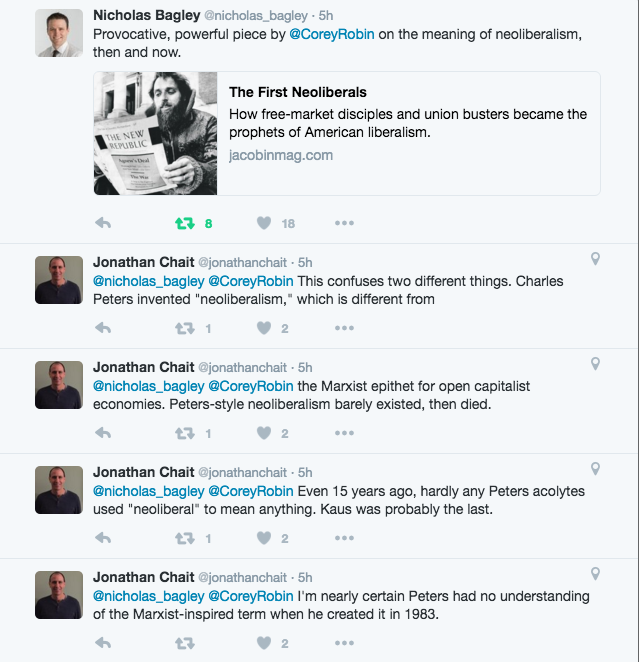I originally ran this post on my blog as two posts. I hope it works here as one. Or perhaps as one, but in two parts. Here goes…
Part 1: On Judith Butler as a Public Intellectual
I’m a bit late to the party on this article in New York about Judith Butler, which was making the rounds last week. But it’s got me thinking, again, about public intellectuals and their style of writing, a topic I addressed earlier this year in The Chronicle Review.
Now, I should confess at the outset that I’m a rank amateur when it comes to queer theory and gender studies. I read, and know, about it from a distance: from friends like Paisley Currah, from my students, and from colleagues in real life and on social media. So forgive me—and happily correct me—if what I am about to say is wrong.
The premise of the New York profile is that Butler was/is the theoretician of our contemporary politics (and culture) of sex and gender, even as that politics and culture have surpassed her in certain ways.
Taking into account that there were many writers and theoreticians who have contributed to our contemporary sensibilities and mores around sex and gender; acknowledging that none of these theories would have become remotely actual were it not for the millions of people, activists and non-activists alike, who worked to make the world more hospitable to the claims of the non-gender-conforming—the article still presumes that much in our world today would be inconceivable were it not for Butler’s original intervention in Gender Trouble. That’s the premise of the article I take to be true.
I don’t mean that to sound as if I don’t believe it to be true, though I recognize that it presumes a problematic narrative of the “Hero Theorist” who makes the world what it is. I just mean that for my purposes, it’s a necessary premise for what I really want to argue.
What struck me in reading the New York piece is that for much of the 1990s, Gender Trouble led a second, or shadow, life in the republic of letters. Where it was received, often nastily, less as a document in our ongoing arguments about sex and gender and more as an instance of Bad Writing. The article references that controversy over Butler’s writing style—a style that could be characterized as strenuous, I think it’s fair to say—but it doesn’t quite capture how heated and vicious the controversy often was. [click to continue…]
